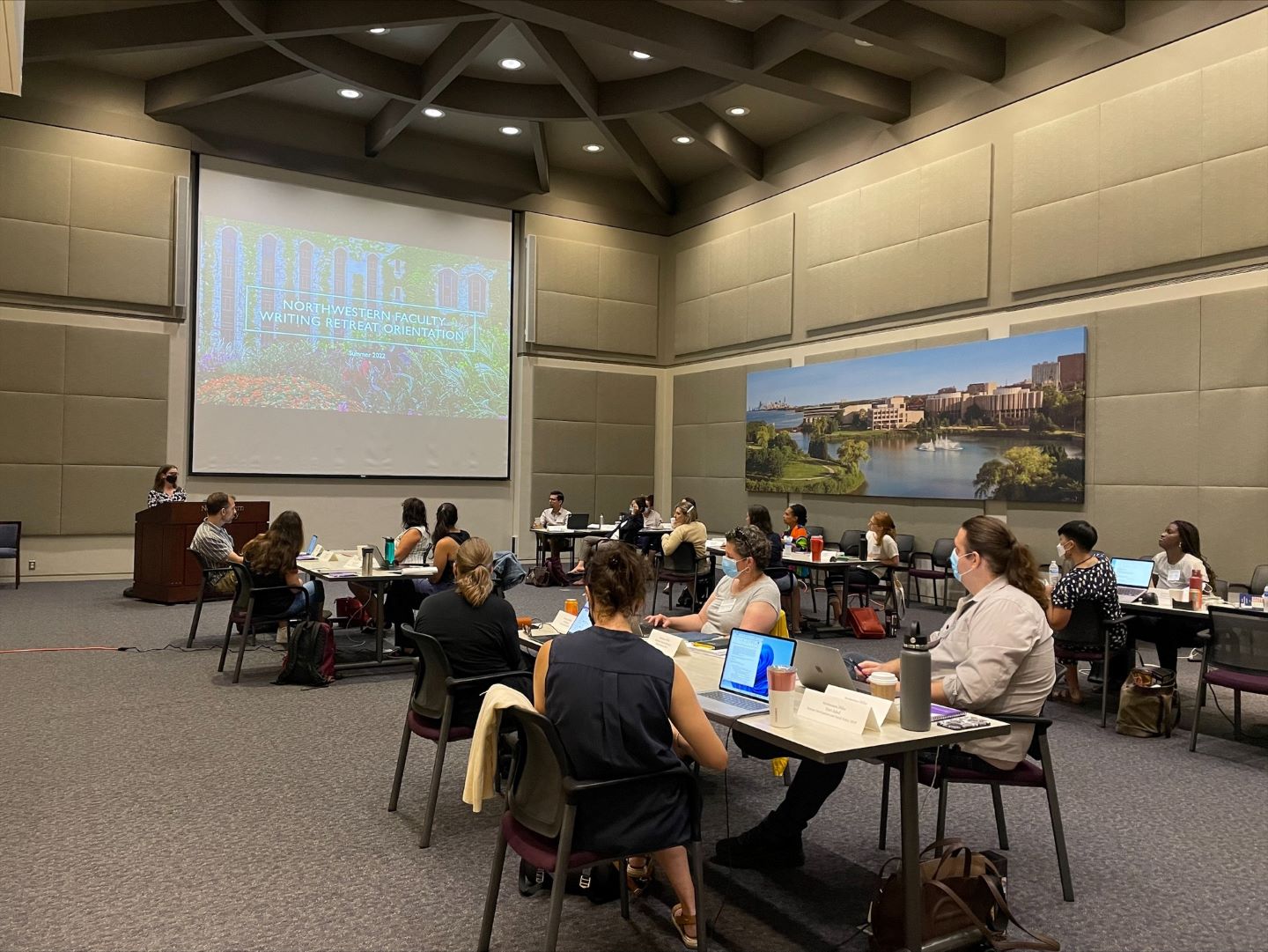Faculty advance critical work during Summer Writing Retreat

Each day this week, 28 members of Northwestern’s faculty have gathered in Hardin Hall on the Evanston campus to write and revise articles, book proposals, book chapters, grant proposals and manuscript revisions. They have written on the topics of community health, mathematics, literature, marketing and more.
This is the Summer Writing Retreat, a new program offered by the Office of the Provost to help faculty members beset by pandemic setbacks and in need of dedicated time, space and support to advance their writing projects free of distractions.
“I have already done much more that I would probably do in a week,” Assistant Professor of Biomedical Engineering Laleh Golestani Rad said on just the second day of the weeklong retreat. “Not only that, I've done it with a sense of well-being and serenity—no pressure and no guilt.”
In addition to providing quiet time to write, the daily sessions include writing strategy discussions led by Director of the Cook Family Writing Program and Associate Professor of Instruction Elizabeth Lenaghan.
“One great perk of the retreat that I think we all will sorely miss is the opportunity to talk to like-minded colleagues, which happens during breaks,” said Rad, who is the principal investigator on a multimillion-dollar, multi-center National Institutes of Health grant application. “I'm surprised by how all of us are suffering from the same feeling of being isolated in our offices, to have lunch at our desks alone, and not talk to anyone for extended periods of time.”
Open to pre-tenure assistant professors and assistant professors of instruction, the Summer Writing Retreat was developed as one of the University's resources for instructors and researchers whose work was slowed by the pandemic.
Assistant Professor of African American Studies Tracy Vaughn-Manley’s article on Toni Morrison’s use of quilts and quilting to preserve the culture and community of Black American women was accepted for publication in late 2020.
“I submitted it and received reviewer reports last year but could not find any time to address their suggestions and revisions,” she said. “I am now confident that my article will be completed and submitted by the end of the Writing Retreat.”
Assistant Professor of Political Science Kimberly Marion Suiseeya similarly has made significant progress on revising a chapter of her book manuscript on environmental politics and Indigenous communities.
“What I needed was protected time and space—two things I could not access in these last two-plus years,” she said. “Thus far, this retreat has provided what I needed most to reset productivity in my work. I didn’t imagine I could actually finish my revisions on this chapter this week, yet now I see the end in sight.”
To further support participants, the retreat provides stipends for faculty who need to pay for childcare or eldercare and even takes evening food preparation out of the equation by sending participants home each day with a pre-prepared family meal for four.
“I have been a working mom for 11 years, caring for my children and students,” Senior Lecturer and Integrated Marketing Communications Director Jacqueline Babb said. “The writing retreat is the first time someone has taken care of me. Northwestern has thought of every way to free me of my daily responsibilities to enjoy the pleasure and satisfaction of uninterrupted writing.”
The Office of the Provost is collecting feedback from participants in this year’s retreat to make determinations about how this program will be facilitated in future years.